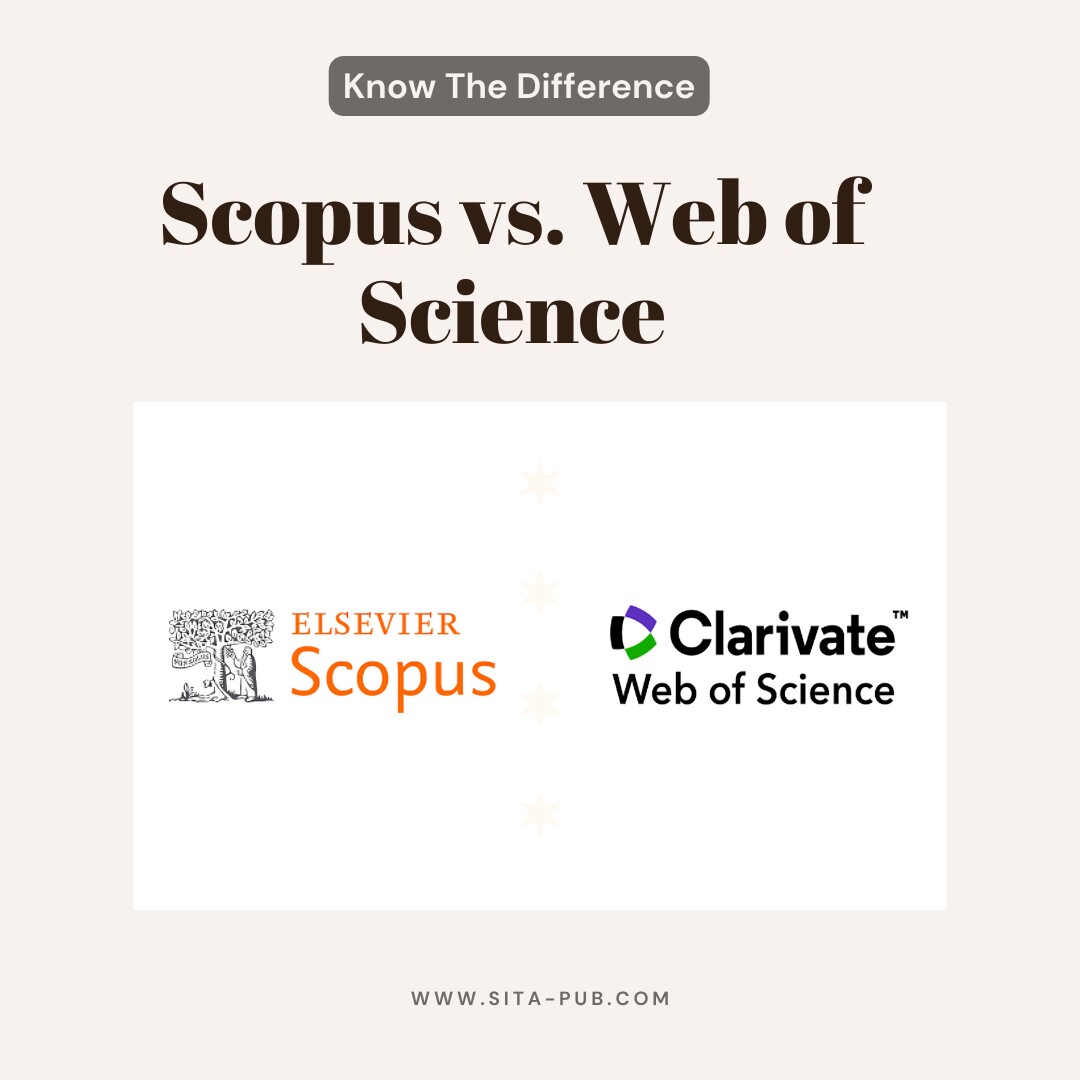Web of Science vs. Scopus: Which Database is Right for You?


When it comes to academic research, bibliographic databases are essential for helping researchers discover, evaluate, and disseminate academic papers. Two of the most well-known databases are Web of Science and Scopus. Both platforms offer valuable resources, but they differ greatly in terms of scope, functionality, and user experience. This article will go over these differences in detail to help researchers decide which database is best for their needs.
Web of Science offers a curated selection of high-quality materials. It primarily indexes peer-reviewed journals, conference proceedings, and some books and patents. The journals included in Web of Science are often considered prestigious, making it a go-to platform for researchers seeking impactful publications.
In contrast, Scopus provides a more comprehensive array of materials. Like Web of Science, it includes peer-reviewed journals and conference papers but also indexes patents and books. Scopus aims to cover a broader spectrum of academic output, which can be particularly advantageous for interdisciplinary research.
The field of study covered by each database is another distinguishing factor. Web of Science has a strong emphasis on the sciences, social sciences, arts, and humanities. It is especially well-regarded for its extensive coverage of high-impact journals in these disciplines.
Scopus, on the other hand, offers a wider breadth of coverage across various fields, including science, technology, medicine, social sciences, and the arts. This diversity makes Scopus an appealing option for researchers working in interdisciplinary areas or those who wish to explore emerging fields.
Indexing practices also differ between the two databases. Web of Science employs a selective indexing approach, focusing on high-impact journals that meet rigorous quality standards. It includes several citation indexes, such as the Science Citation Index, Social Sciences Citation Index, and Arts & Humanities Citation Index. This selectivity ensures that researchers are accessing top-tier literature.
In contrast, Scopus adopts a more inclusive approach, indexing a wider variety of journals, including both high-impact and lesser-known publications. This broad indexing can be beneficial for researchers looking for diverse perspectives and emerging trends within their fields.
Both databases provide various citation metrics to assess research impact, but they differ in their offerings. Web of Science features the h-index, which measures both productivity and citation impact. It also provides the Impact Factor, a widely used metric that reflects the yearly average number of citations to articles published in a journal.
Scopus also utilizes the h-index but introduces additional metrics such as CiteScore, which measures the average citations received per document published in a journal over a three-year period. Furthermore, Scopus offers the SCImago Journal Rank (SJR) and Source Normalized Impact per Paper (SNIP), providing a more nuanced view of journal impact and citation behavior.
When it comes to search functionalities, both databases have their strengths. Web of Science offers advanced search capabilities, allowing users to perform complex queries and track citations effectively. Researchers can filter results by document type, publication year, and even specific citation data, making it a powerful tool for in-depth research.
On the other hand, Scopus is known for its user-friendly search interface, which simplifies the process for researchers, especially those new to bibliographic databases. It provides options for author and affiliation searches, as well as easy filtering by subject area, document type, and publication year. This intuitive design can save time and enhance productivity.
The user experience can significantly impact how effectively researchers can utilize these databases. Web of Science is often considered more complex due to its extensive features and advanced functionalities. While this complexity can be beneficial for seasoned researchers, it may pose challenges for newcomers.
Conversely, Scopus is lauded for its straightforward and intuitive interface. Users often find it easier to navigate, making it an attractive option for those who prefer a more accessible approach to academic research.
Deciding between Web of Science and Scopus ultimately depends on your specific research needs and preferences.

Choose Web of Science if:
You are focused on high-impact research and require access to top-tier journals.
You need detailed citation analysis and tracking capabilities.
Your work primarily falls within the sciences or social sciences.
Choose Scopus if:
You require broader coverage across multiple disciplines.
You appreciate a more user-friendly interface that simplifies the search process.
You want to explore a wider range of journals, including those in emerging fields.
In conclusion, both Web of Science and Scopus serve as invaluable tools for researchers, each with its strengths and weaknesses. Web of Science excels in providing access to high-impact journals and detailed citation analysis, while Scopus offers broader coverage and a user-friendly experience. Researchers should consider their specific needs, the fields they are working in, and their familiarity with each platform when making a choice. Ultimately, both databases play a vital role in advancing academic research and facilitating the discovery of scholarly work.
Feature | Web of Science | Scopus |
Type of Material | Peer-reviewed journals, conference proceedings, books, patents | Peer-reviewed journals, conference papers, patents, books |
Field of Study | Sciences, social sciences, arts, humanities | Broad coverage across all disciplines |
Indexing | Selective, high-impact journals | Comprehensive, includes various journals |
Metrics Used | h-index, Impact Factor | h-index, CiteScore, SJR, SNIP |
Search Options | Advanced search capabilities | User-friendly interface |
User Experience | More complex, suited for advanced users | Intuitive, easier for beginners |
Best For | High-impact research, detailed analysis | Broader coverage, interdisciplinary research |
If you're considering where to publish your research, we can help by providing you with a comprehensive list of journals from both Scopus and Web of Science. This list will not only highlight the key journals in your field but also assist you in making an informed decision based on your specific research goals. Whether you’re aiming for high-impact publications or seeking broader coverage, having this information at your fingertips will enhance your publishing strategy. Reach out to us today, and we’ll deliver the journal lists directly to you!
If you have any questions, inquiries, or would like to learn more about our services, please don't hesitate to reach out to us. Our dedicated team is ready to assist you.